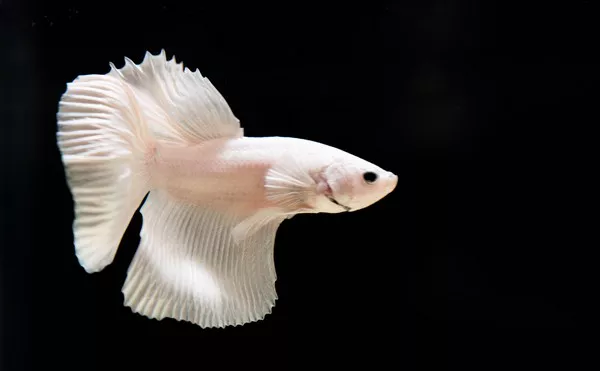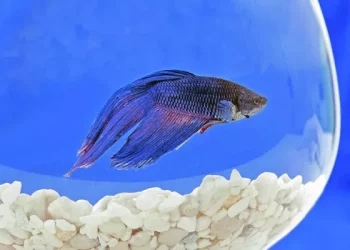Betta fish, also known as Siamese fighting fish, are one of the most popular freshwater aquarium fish worldwide. Their vibrant colors, flowing fins, and unique personalities make them appealing to both novice and experienced fishkeepers. However, many new owners often question whether betta fish need a pump in their tank. This article will explore the necessity of pumps in betta fish tanks, discussing factors such as water quality, tank size, filtration systems, and the overall well-being of betta fish.
Understanding Betta Fish and Their Habitat
Natural Habitat
Betta fish are native to the shallow waters of Southeast Asia, particularly in countries like Thailand, Cambodia, and Vietnam. In the wild, they inhabit rice paddies, slow-moving streams, and marshes where water is often warm and rich in organic material. These environments typically have low to moderate water movement, which plays a crucial role in understanding how to care for bettas in captivity.
Basic Care Requirements
Betta fish thrive in warm water, ideally between 75°F to 82°F (24°C to 28°C), and they require a stable environment. They are labyrinth fish, meaning they have a specialized respiratory system that allows them to breathe air from the surface. This unique adaptation influences their habitat needs, particularly regarding water movement and oxygenation.
The Role of a Pump in a Betta Fish Tank
Filtration vs. Aeration
When considering whether to use a pump in a betta fish tank, it is essential to distinguish between filtration and aeration. Pumps can serve both functions, but the way they impact the tank environment varies.
Filtration: Filters help maintain water quality by removing debris and harmful substances, such as ammonia, nitrites, and nitrates. A good filtration system is crucial for any aquarium setup, including those housing bettas.
Aeration: Aeration involves increasing the oxygen levels in the water. While bettas can breathe atmospheric oxygen, maintaining proper oxygen levels is vital for their overall health.
Do Betta Fish Need a Pump?
The short answer is that while betta fish do not necessarily require a pump, using one can significantly enhance their living conditions if done correctly. A pump can help keep the water clean and well-oxygenated, but the specific needs of bettas must be considered to avoid creating an environment that is too turbulent.
Choosing the Right Pump for Betta Fish
Tank Size and Water Movement
One of the critical considerations when selecting a pump for a betta fish tank is the size of the aquarium and the desired water movement. Bettas prefer calm water, so a pump that creates strong currents can stress them out.
Small Tanks (5 gallons or less): In smaller tanks, it may not be necessary to use a pump, especially if you are using a sponge filter that provides gentle filtration without strong currents.
Medium Tanks (5 to 20 gallons): For these tanks, a small pump or a filter with adjustable flow rates can be beneficial. Look for filters specifically designed for bettas or small tanks that minimize water movement.
Large Tanks (20 gallons or more): In larger tanks, using a pump becomes more critical to maintain water quality. Again, choose a pump that allows you to adjust the flow or use baffles to diffuse the current.
Types of Pumps and Filters
Several options are available for betta fish tanks:
Hang-on-Back Filters: These are common and can provide good filtration but often create water movement. Choose one with an adjustable flow rate or a model designed for bettas.
Sponge Filters: These filters are an excellent option for bettas as they provide gentle filtration and aeration without creating strong currents.
Canister Filters: Suitable for larger tanks, these filters can be effective but require careful consideration of flow rates.
Internal Filters: These filters sit inside the tank and can offer adjustable flow, but ensure that the current is not too strong for the betta.
Benefits of Using a Pump
Improved Water Quality
One of the primary benefits of using a pump in a betta fish tank is the improvement in water quality. Effective filtration helps remove waste, uneaten food, and harmful substances, reducing the risk of disease.
Enhanced Oxygen Levels
A pump can help increase oxygen levels in the water, promoting better health for your betta. While they can breathe air from the surface, providing oxygen-rich water is essential, particularly in a heavily stocked aquarium.
Stability of Water Parameters
Pumps help circulate the water, which can prevent stagnant areas where harmful bacteria may grow. Maintaining stable water parameters is crucial for the well-being of bettas, and a pump can aid in this regard.
Potential Drawbacks of Using a Pump
Stress from Strong Currents
While pumps offer many benefits, they can also create stress for bettas if the water flow is too strong. Bettas are not strong swimmers, and excessive current can make it difficult for them to navigate their environment. This can lead to stress, which may manifest in poor eating habits, hiding, or aggressive behavior.
Noise and Vibration
Some pumps can be noisy or produce vibrations that may disturb the fish. Bettas can be sensitive to changes in their environment, and excessive noise can lead to stress.
Best Practices for Using a Pump in a Betta Fish Tank
Choose the Right Equipment
Selecting a pump or filter specifically designed for bettas or small tanks is crucial. Look for products that offer adjustable flow rates and gentle filtration.
Adjust Flow Rates
If using a filter with an adjustable flow, ensure that the water movement is minimal. Aim for a gentle current that allows the betta to swim comfortably without feeling overwhelmed.
Create Shelters and Hideouts
Providing plenty of plants, decorations, and hiding spots can help bettas feel secure. These structures can break up the current and give the fish places to retreat if they feel stressed.
See Also: How Do Betta Fish Survive Without Oxygen?
Monitor Water Quality
Regularly test the water parameters, including ammonia, nitrites, nitrates, and pH levels. Keeping the water clean and well-maintained is essential for the health of your betta, whether or not you use a pump.
Signs of Stress in Betta Fish
It is crucial to monitor your betta for signs of stress, especially if you are using a pump. Common indicators of stress include:
Faded Colors: Healthy bettas display vibrant colors. If your betta’s color appears dull, it may indicate stress or illness.
Excessive Hiding: While bettas enjoy exploring their environment, hiding excessively can be a sign of stress.
Fins Clamped: When bettas clamp their fins close to their bodies, it often signifies discomfort or stress.
Loss of Appetite: A stressed betta may lose interest in food.
Aggressive Behavior: Increased aggression toward tank mates can be a sign of stress.
Alternatives to Using a Pump
If you’re concerned about the effects of a pump on your betta, there are alternatives for maintaining water quality and oxygen levels.
Regular Water Changes
Performing regular water changes is one of the most effective ways to maintain a clean environment for your betta. Changing 25-50% of the water weekly can help dilute harmful substances and keep the water fresh.
Live Plants
Incorporating live plants into the aquarium can aid in oxygen production and improve water quality. Plants such as Java Fern, Anubias, and Hornwort are great options that provide shelter while enhancing the tank’s aesthetic appeal.
Manual Aeration
For small tanks, you can manually aerate the water by gently disturbing the surface or using a small air stone. This method allows for oxygen exchange without the need for a pump.
Conclusion
In summary, whether betta fish need a pump in their tank depends on various factors, including tank size, water quality, and individual fish behavior. While pumps can improve water quality and oxygen levels, they must be chosen and used carefully to avoid stressing the fish with strong currents.
A well-maintained environment with proper filtration, regular water changes, and appropriate tank conditions is crucial for the health and well-being of your betta fish. By understanding the needs of your betta and providing a suitable habitat, you can enjoy the beauty and companionship of these magnificent fish for years to come.
With the right knowledge and practices, betta fish can thrive in a comfortable, stable environment, showcasing their vibrant colors and charming personalities. Ultimately, whether you choose to use a pump or not, the key is to prioritize your betta’s comfort and health.
Related Topics:
























